Greek-Turkish: Dialogue on EEZ and continental shelf on ice until further notice
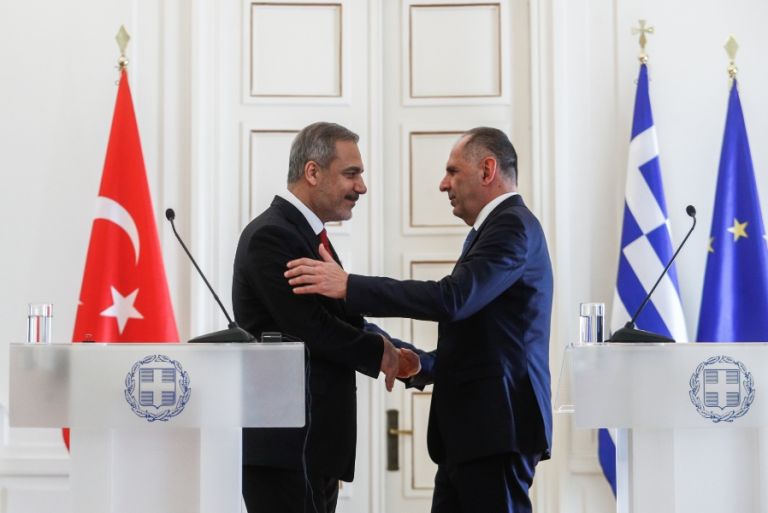
Πηγή Φωτογραφίας: Eurokinissi (Αρχείου)//Greek-Turkish: Dialogue on EEZ and continental shelf on ice until further notice
The process of seeking common ground with Turkey on the delimitation of the continental shelf/EEZ is on ice, to draw up a coincidence agreement, as the Greater Greece-Fittan talks so far have failed to yield results, with the government opting for a step-by-step approach and the aim of not disturbing calm waters.
This equation is far from easy, as Turkey proves daily and on the ground that it perceives calm waters as self-limitation on the part of Greece in the exercise of its sovereign rights, something that cannot be accepted by any Greek government. Thus, an attempt is being made to find extremely delicate balances in Greek-Turkish relations in a particularly difficult and volatile environment, which is made even less predictable by the idiosyncratic and unpredictable policy that the new US president Donald Trump seems from the first signs of writing to be following.
For Turkey, its top priority is to re-establish a working relationship with the new US administration that will ensure it is recognized as a regional player and a “useful” ally of Washington in exchange for pursuing its own self-interested goals, whether in Syria and the Middle East, the Caucasus, or its economy and defense industry. The US president’s choices, especially about the Middle East, with his subversive proposals to convert Gaza into a Riviera with the expulsion of the Palestinians, have turned the region upside down and put Turkey in an extremely difficult position as well.
Careful disapproval
Recep Tayyip Erdogan has contented himself with cautious disapproval of Trump’s proposals, forgetting the sharp rhetoric he has hitherto employed for far less controversial statements and proposals on the Palestinian issue. Ankara does not want a confrontation with Trump at the beginning of his term, but on the other hand, Erdogan, who is projected as the “protector” of the Palestinians and Muslims everywhere, will not be able to hide in his “shell” for a long time. Indeed, Trump’s support for Israel, again threatening Gaza with “hell” if all the hostages are not released. is causing understandable concern at the Presidential Palace in Ankara, which for the past 18 months has demonized Israel and Benjamin Netanyahu. With these critical dilemmas before him, and while he has not gained even an unofficial indication of Trump’s intentions to abandon Syria’s Kurds, the Turkish leader shows no inclination to get serious about promoting solutions to Greek-Turkish issues.
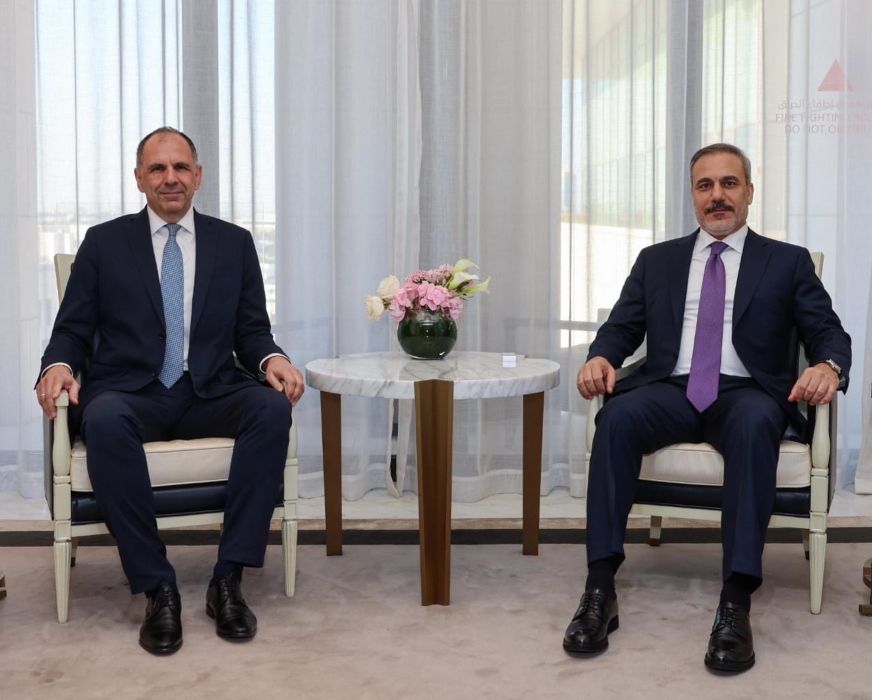
However, this does not imply any change of attitude or position on the part of Turkey. A senior diplomatic source, also referring to the incidents with the harassment of the two search boats by radio and the resumption of the practice of sending a Turkish corvette north of Crete, stressed that Turkey is content with the tactic of “a dog marking its territory”.
Turkey, avoiding for the moment a dangerous escalation, seeks to record, reaffirm ,and consolidate its claims against Greece, while at the same time sending the message that it will not tolerate “fait accompli”, as it calls the exercise of our country’s sovereign rights even north of Crete and east of the 25th meridian. Athens believes that there is no room for progress on the major issue of demarcation, as in their meetings Foreign Ministers George Gerapetritis and Hakan Fidan have not even agreed on the scope of the discussion so that it can begin in a structured manner, as Greece insists on discussing a single dispute, while Turkey insists on a package of issues concerning its claims against Greece, even including the issue of a “Turkish minority”.
The “big picture”
A diplomatic source who spoke to reporters on Tuesday, essentially wanting to de-dramatize the situation, stressed that as long as the continental shelf issue remains unresolved there will continue to be problems and claims and assertions will be made, at the same time referring to the big picture of the progress that has been made in the last two years with the reduction to zero of violations and overflights, the development of economic relations, open channels of communication, the reduction of migratory flows, the increase in tourism to the islands.
In this process of “low politics”, however, challenges arise and there are “difficult-to-manage issues”. The Turkish corvette north of Crete and the radio harassment of the two Italian research vessels (in the first incident), with the statement that the area is not demarcated and is not under Greek jurisdiction, foreshadows what Turkey’s reaction will be if the exploration is extended, as it should be, to the east of Kasos within the legally delimited Greek EEZ which Turkey does not recognize and is attempting to overlap with the illegal Turkolibiko Memorandum. Last July Turkey sent 5 warships to the area and the crisis was only avoided when the ship “Ievoli Relume” returned within Greek territorial waters and after a Turkish NAVTEX was issued for a small part of the surveys just a few miles off 6 nautical miles and for these works.
The large and ambitious GSI electricity interconnection project must go ahead, however, or those who raise doubts about its implementation because of the “geopolitical risk” will be confirmed. This will be an extremely difficult test for Greece and for the whole process of Greek-Turkish rapprochement. According to reports, Gerapetritis discussed the issue with Mr. Fidan in Doha, stressing that the path of international law should be followed, but there has been no approach so that practically the investigations can proceed without the risk of causing a crisis. On Friday afternoon, however, the “Ievoli Relume” was at anchor southeast of Kasos near the coast, but no NAVTEX had been issued for exploratory work by that time.
Marine parks
Athens is making every effort to state that the investigations will continue as normal. Pending are the plans for the Marine Parks and the Marine Spatial Planning (MSP), for which a condemnation decision for Greece by the European Court of Justice is expected due to its late submission, with Mr. Gerapetritis stating that its submission will be made soon, while the diplomatic source stressed that it is not the Ministry of Foreign Affairs that is stalling, but the last technical editing of these plans is being done.
Of course, the TFS does not offer sovereignty to Greece, but it does reflect sovereignty over islands and islets in the Aegean and Greek maritime zones, something Turkey is reacting to by refreshing the theory of “green zones” and “Blue Homeland”. The issue of electrical interconnection is of particular importance, as in the coming years major international projects are expected to be promoted and implemented for laying cables for telecommunications and data, and the Eastern Mediterranean region cannot be a “black hole” and it is up to Ankara and its claims to implement them, even more so as it will have an interest in these projects.
A critical test for Greek-Turkish relations is, however, the effort to resume talks on the Cyprus problem. The rhetoric of Turkey and the Pseudo-state leaves no room for optimism ahead of the convening of the Expanded Conference on Cyprus in Geneva on March 17-18.
Turkey has consistently treated the Cyprus issue as a matter of national security, embedded in its own strategy for a leading role in the Eastern Mediterranean, rather than as a bi-communal dispute.
Its aim, through the two-state position, is either to achieve a solution that gives it control and influence over the Republic of Cyprus by overturning the solution framework of UNSC resolutions or to drive the situation to a controlled impasse so that the next step is to demand the “lifting of the isolation” of the Pseudo-state and its international recognition. Following the meetings of the Deputy Secretary of State, the UN Secretary of State for Foreign Affairs and Security Policy. After the Deputy UN Special Representative for Political Affairs Rosemary Di Carlo’s meetings in Ankara (preceded by meetings in Nicosia, the occupied territories, and Athens), a diplomatic source made the Turkish position clear: “Recognition of sovereign equality and equal international status and as a minimum manifestation of this it is necessary to recognize the right to ‘3D’, i.e. to allow direct flights, direct trade with Turkish Cypriots and direct international contacts with the Turkish Cypriot leadership”, which is an indirect recognition of the Pseudo-state…
Controlled deadlock
Turkey also wants a controlled deadlock on the Cyprus issue to overcome the major problems it creates in its relations with the EU, all the more so now that it is seeking to join the European defense ecosystem through its participation in the Missile Shield, the development of its defense industry and its entry into the European arms market.
Another thorn in the talks will be Turkey’s reaction to the Republic of Cyprus’ defense build-up and its ever-closer military relationship with the US, as Turkish and Turkish Cypriot officials speak of a “violation of the Treaties of Guarantee and Alliance”, wanting to prevent the strengthening of Cyprus’ deterrent power and the upgrading of its geopolitical role due to developments in the Middle East.
Also, decisions to resume drilling in blocks 5 and 6 of the Cypriot EEZ may lead to “aggressive actions” in case of a breakdown in talks. These, however, will not so much involve harassment of ExxonMobil’s explosives, as Turkey is unlikely to turn against the American giant, as attempts to explore and drill within the Cypriot EEZ, a move that will lead it to a new cycle of tension with both Greece and the EU.
Source: pagenews.gr
Διαβάστε όλες τις τελευταίες Ειδήσεις από την Ελλάδα και τον Κόσμο






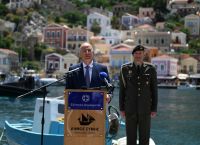

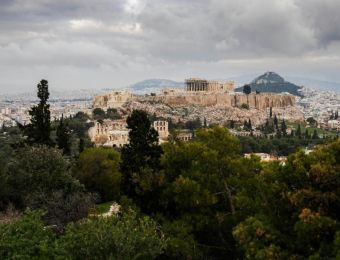

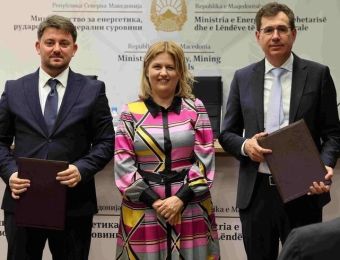
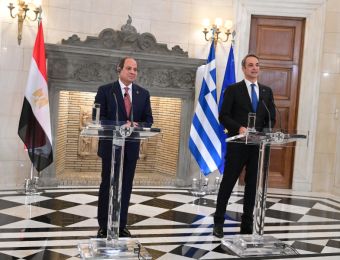

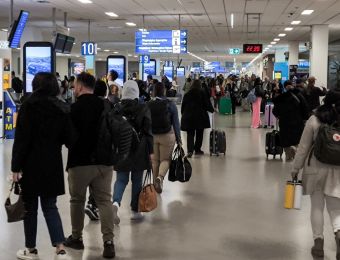
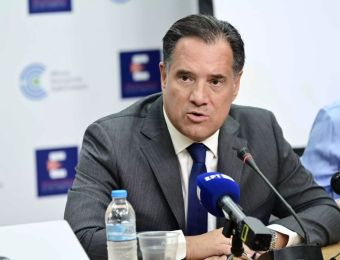
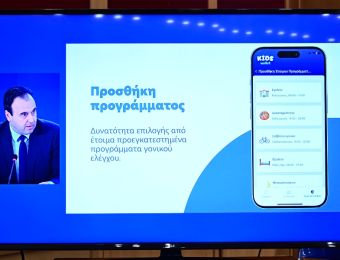
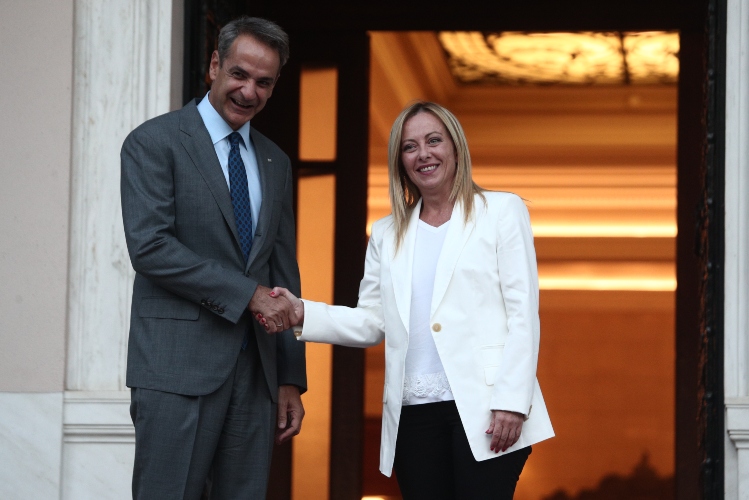

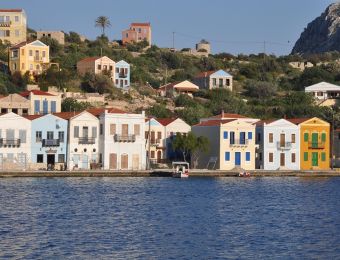

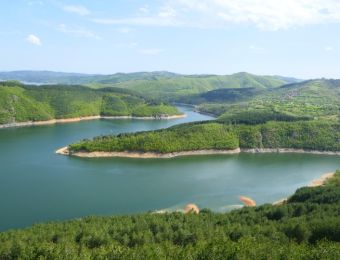
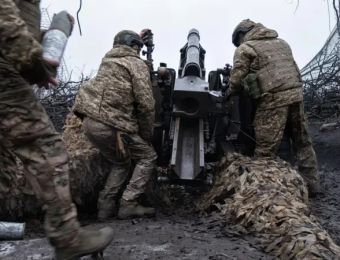
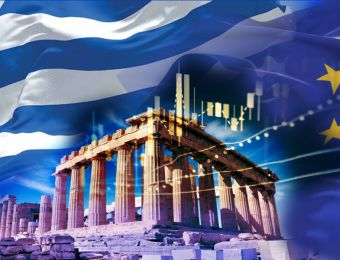
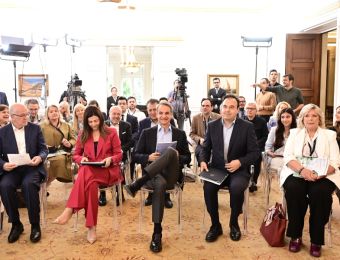
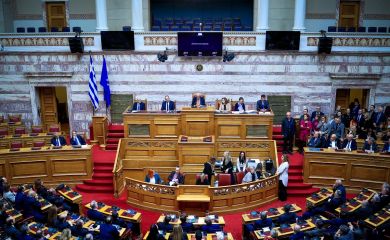
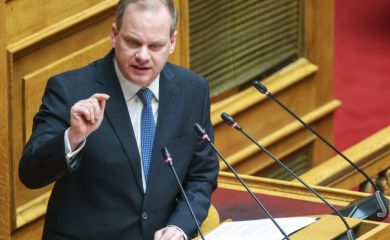

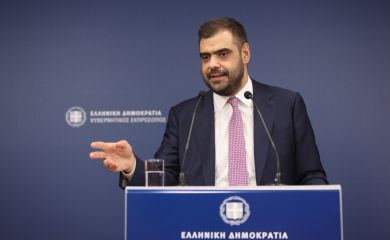
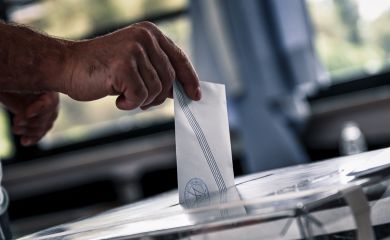

Το σχόλιο σας